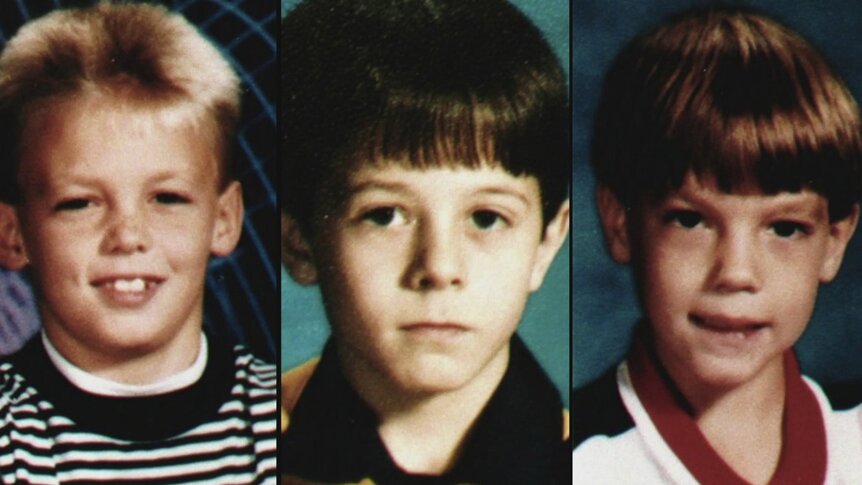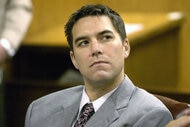Create a free profile to get unlimited access to exclusive videos, breaking news, sweepstakes, and more!
Judge Rejects Petition For New DNA Testing On Evidence In West Memphis Three Murders
Damien Echols, who along with two friends served nearly two decades in prison for the murders of three 8-year-old boys in West Memphis, Arkansas, petitioned for new DNA testing in an attempt to identify the children's true killer.

A judge has denied a request for new DNA testing of evidence in the high-profile West Memphis Three murders.
It’s the latest setback in a case that has played out in the legal system for decades and inspired the documentary trilogy “Paradise Lost,” which questioned whether the three men convicted of brutally murdering three young Cub Scouts in the early 1990s in West Memphis, Arkansas had really committed the heinous acts.
Steve Branch, Michael Moore and Christopher Byers, all 8 years old, disappeared on May 5, 1993 while out riding their bikes together, according to WHBQ-TV. The boys were found dead, hogtied with their own shoelaces, the next day in a drainage ditch.
The shocking crime rocked the community, particularly after authorities arrested three teens for the murders a month later. Prosecutors argued that 18-year-old Damien Echols, 16-year-old Jason Baldwin and 17-year-old Jessie Misskelley had killed the young boys as part of a satanic ritual, CNN reports.
The three teens were convicted and spent years behind bars, despite no DNA evidence ever linking them to the crime.
They were released from prison in 2011 following a lengthy appeals process that resulted in a new trial, based on new DNA evidence. Rather than sit through a new trial, the now grown men agreed to enter into Alford pleas, allowing them to maintain their innocence while acknowledging there was evidence that could have convicted them. They were sentenced to time served under the new deal.
More than a decade later, attorneys for Echols are still trying to prove his innocence and requested in January that new DNA testing, using technology known as a M-Vac wet vacuum system, be used on ligatures that had been used to bind the victims, according to a petition obtained by Oxygen.com.
They had argued that the new technology, which wasn’t available in the past, “might serve to identify the killer(s)” who carried out the crime and help achieve justice in the case.
“No one knows, of course, whether additional testing of the ligatures with the new M-Vac DNA collection technology will lead to the recovery of new DNA samples for testing or not. But one thing for certain is that such evidence will definitely not be found if testing with this new technology is not done,” his attorneys wrote.
The technology works by placing a sterile solution onto a surface while simultaneously applying vacuum pressure "to collect the solution and whatever DNA material is present on the surface," according to the petition.
Echols’ attorneys argued that the wet vacuum system was more effective than other means of DNA collection and could provide answers about who killed the young boys. According to the petition, a forensic laboratory employee said the shoelace ligatures were the “most likely” source of DNA evidence in the case if any was available.
“Echols knows that his DNA is not on those ligatures because he had no role in committing these murders,” they wrote.
However, prosecutors fought the new DNA testing arguing that the testing would “forever alter” the evidence making it a “one-shot deal.”
Prosecuting attorney Keith Chrestman also argued that even if other DNA was found on the ligatures, it would not exclude Echols from committing the crime, according to a response filed in court and obtained by Oxygen.com.
He also said for the court to grant the petition it must meet the law’s requirements and did not do so because Echols was no longer in custody, which didn’t make habeas corpus “an available remedy.”
On Thursday morning, Judge Tonya M. Alexander agreed with prosecutors and ruled that a habeas petition can only be brought in the state if the person in question is in custody under current state law, WHBQ-TV reports.
Echols, who had been in the courtroom, said he was disappointed by the decision.
“It felt like they would rather nitpick at aspects of the law than find out who actually killed these children,” he said, according to the local outlet.
His attorney, Patrick Benca, said they plan to appeal the decision.
To learn more about the case, watch to Oxygen's "The Forgotten West Memphis Three."



























